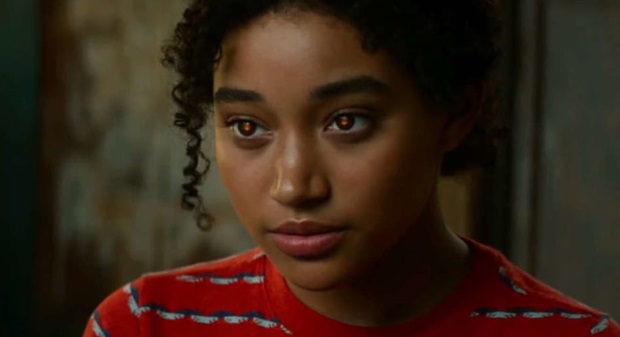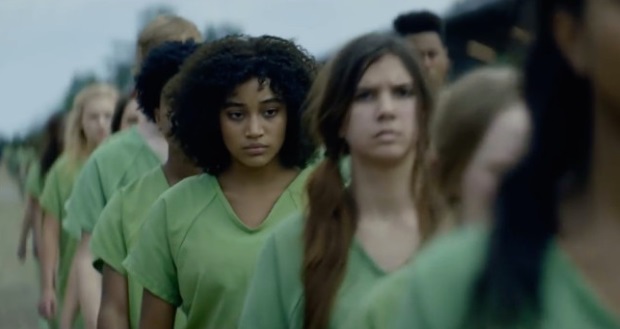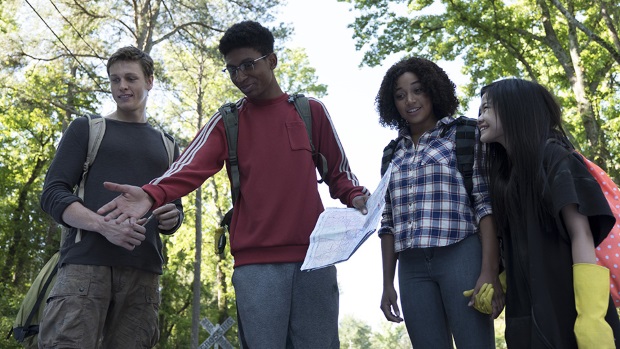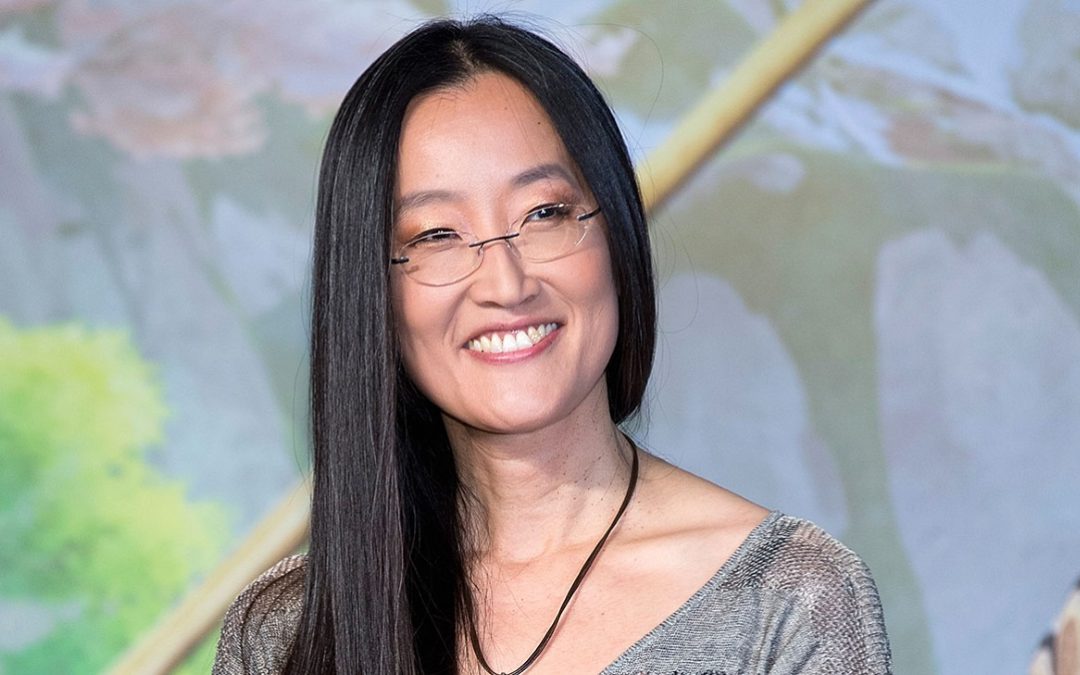Having been one of the most successful female directors – if not the most successful female director – at the box office over the past decade or so, courtesy of the Kung Fu Panda trilogy, Jennifer Yuh Nelson has now tackled live action, with her adaptation of Alexandra Bracken’s young adult novel, The Darkest Minds.
Ahead of its UK release, she spared us some time for a natter…
The obvious bit first, then. Why this story? Why now? Why you?
One of the first things I noticed about the script when I read it was the great emotional core. Very few scripts have that, especially from such an early draft. It’s very hard to work that in retroactively, and then fit it in.
Is it key too just who that emotional core is talking to? That it’s a broad audience you go to?
Right. It’s a very diverse cast. A very diverse story, and it’s very rare to see.
The thing is, they’re just characters that happen to be diverse. It’s something that came from the book. They’re there, they’re so real, they’re so natural. It’s endemic to the book, and it’s so rare, so natural, so real. It speaks to so many people. It’s one of the amazing things about it. I think a lot of people find themselves in this story.
What position was the film in when you came to it? If I’ve got the dates right, the book was optioned in 2014, and you came aboard in 2016? Where, for instance, was the script at that stage?
I came on basically when there were very early drafts. I had a lot of input on the script, along with Chad Hodge, who is actually a friend of the author. There was a lot of respect and love for the book. We wanted to make sure it was very true to it. I went back to several things in the script, and made sure it was word for word to the book. We developed it for a bit of time. We had a nice amount of time before the shoot.
When you have a relatively young cast, do you tend to build extra rehearsal time into your schedules?
You do build rehearsal time in, but not a lot. I don’t believe in overcooking the actors too much. Especially when it’s a real performance that I’m looking for. It was making sure they felt good, they were performing with each other, and amazingly they became great friends. The chemistry was really easy to shoot, because it was already there.

When it came to the casting, then, was Amandla Stenberg, in the lead role, the eureka point for you?
Amandla definitely was the eureka point. The character of Ruby is really the core of the group. She’s not described that was in the book, because it’s all first person.
When coming to make a film out of it, we wanted to find someone who had the strength and the vulnerability of Ruby. Amandla was someone that we knew about. The producer was very close friends with her: his daughter went to the same school as her! We were just doing a general chat, and the producer stopped and went wait a minute, this might be a good idea. I thought about it, and thought I couldn’t imagine anyone else as Ruby. When I spoke to the author about it, she was so excited.
Involving the author can be a double edged sword of course. But this sounds like you had a natural, happier relationship?
Definitely. Alex[andra Bracken] was fantastic. She’s so enthusiastic and wonderful and her voice was about the age of the characters when she wrote the book. I definitely wanted to make sure that we stayed true to the original source, and I found things off her. How do you think this would go, that would go? If we changed something, I wanted to make sure that she was okay with it. Also, to make sure what’s important, and what do we not touch?
We’re hearing all sorts of stories about hostile film sets, and very shouty filmsets. But yours seem calm and collaborative? Is that your favourite creative environment?
It’s definitely the best environment that I can work in. I want a space for people to feel safe and be creative. Actors want it, too. They want to feel like they’re listened to, and they’re safe to experiment. But also, you’re more creative if you can relax. And so I definitely like to have a set where people don’t feel stressed out. I want them to feel exhilarated, where they can come up great ideas. Be energised, but not stressed.
I know from our previous chat that the backlog of movies you love is brilliantly eclectic. I know Cyborg is a real favourite of yours…
Yeah! Yeah!
You got Van Damme into a Kung Fu Panda film in the end, and that was clearly down to you!
I did! That was my geek out moment! I had my photograph taken with him!
Do you keep the photograph above your desk?
[Laughs] No, no! It’s on my phone!
I wonder if your backlog of movies informed the cold opening we get of The Darkest Minds. I don’t think we’re talking full-on Assault On Precinct 13. But the opening to your film: was the sacrosanct for establishing tone? Did you get any pushback?
It certainly makes you know what’s going on doesn’t it? [Laughs]
It really does!
I think it’s important to how everything is treated. If you treat everything as not over the top, and with respect, I don’t think it comes off as too much. We had to make sure that the movie was a real balance between the joy and positivity of the relationships, in addition to the real dire situation that the kids are facing. The circumstances are dire. They are dire. But they have to be dire in order to show the strength of the characters overcoming them. That’s the big balance. I didn’t want this to be a dark or depressing movie. And it’s visually, definitely, not that. It’s intended to be very positive and beautiful. I think the word beautiful is key for the look of the film. There’s always balance.

I wonder if the time you took to make the film, and thus moving it away from the glut of young adult sci-fi movies of a few years ago, has been a positive for you? Because you tell your story too in three acts, in under two hours. Where maybe two or three years ago even, it would have been split into two parts?
It might have been. There’s a lot of story to tell in the novel. But I strongly believe that each film has to be a standalone enjoyable experience for the viewer. I can’t do the thing where people think they saw a third of the movie. I think that’s a bit of cheating. I want people to sit there and watch a movie, and think that they’ve seen a movie. I always want to do a big finale.
How hard did you work to get the running time so compact? It ended, and I would have happily had another five or ten minutes.
That’s good! That’s much better than wanting five or ten minutes less! It was actually exactly what it needed to be. The pace of the movie was good, I was happy with that. If it leaves you thinking you wish you could spend a bit more time with the characters, that’s kind of the goal.
Digging into your background again, you’ve talked about working on projects like Dark City, and your love of visual, fantastical movies. And here you are directing a dystopia story for yourself now. I was reminded when watching your film that when Steven Spielberg was directing Minority Report, he insisted that the buildings for the future had to be older version of what was around there. That we’re all living in the same buildings, they’re just older. How did you decide to go about grounding the future world you put on screen?
It definitely was a conscious effort to ground it. I think the idea of a distant, far off dystopia, where the world is completely different from what we have now, is good, but it’s been done. Especially in YA movies. One of the most important things with this film was to make it as grounded as possible. That you could literally go outside and see this happening today. It’s part of the immediacy of what is happening in the story.
I made sure that in designing the look of the film that we had something that was reality-enhanced. Now, but slightly pushed. There’s beauty. There’s exaggeration to the colour. Even the dark areas are exaggerated in colour so it’s not depressing to look at. It’s all relatable.
You’ve got a line early in the film where it’s said that there’s suddenly lots of empty space. Whereas many futures we see on film are clutter and wreckage. Your film, though, is very spacious and outdoors. Does that go down to making it relatable, even chilling?
Yeah. Our film was mostly practical. A lot of the effects, and the environment, is practical. One of the things I wanted to make sure of was the sense of the open road. The sense of the freedom of people being habilitated to freedom for the first time. Kids, having a road trip, that kind of vibe to it. The openness of the spaces was very important. It was what gets rid of the feeling of dark claustrophobic dystopia. Instead it’s a wide open possibility, a joyful film.

The thing that struck me whilst watching the movie, appreciating I’m not the core target audience – although I did enjoy it! – is that I got the sense that it’s going to be someone’s new favourite film. The person this is aimed at? I think it’s going to mean a lot to them. How conscious are you as a storyteller about that? Because you can’t make a film like this for me?
It definitely does affect how you tell the story, because it is supposed to be someone’s favourite film, because it’s based on someone’s favourite book! The people who love the book love it ravenously. They love the characters. Being aware of that fanbase and of what these characters mean to people, I think it trickles out into the script itself. These characters are based on ones that are so important to people, and I wanted to be true to that. I think that feeling of these are someone’s favourite things? They are.
Before we wrap up, I should say that I still mourn you never got to give Kung Fu Panda 2 its original subtitle, The Kaboom Of Doom….
I know! It’s so sad!
Were you vetoed in the end?
It was a sad day! There was a lot of discussion about it. But I tried! [Laughs]
One of the things we try to do with our site is we try and talk to people who are struggling to get people to believe in their story. Perhaps they don’t have much self-belief, or the world hasn’t discovered them. What would your message for them be, the people trying to tell stories but perhaps struggling to find that spark?
I think that, because it’s very understandable to struggle, especially in a very competitive and judgemental field such as entertainment… but the fact is that if it’s something you feel you have to, that you do because nobody tells you to do it, but you enjoy, then keep doing it. There’s nothing wrong with pushing forward and finding the people you want to go on this adventure with. Those opportunities will come. There are ups and downs, but don’t let it affect your personal drive to keep doing it.
Last question, then. I figure everyone else asks you what it’s like moving from directing animation to live action, as if they’re two alien fields. Do you mind, then, if I don’t?! I just want to know when you’re going to make your kung fu movie!
[Laughs] I want to get one! I want to get one going! I so want to do that!
I got that sense last time, that you were thirsting to do it. And I know you were linked with A Bittersweet Life at one stage. But is that the direction you’re pushing towards?
I’d love to get some hardcore action going on! [Laughs] I want to sit and craft hardcore fight scenes. That would be the next big thing you want to do!
You’ve directed massive action sequences in the Kung Fu Panda trilogy of course. But presumably, you don’t get quite the recognition, because it’s animation?
Right. Also, people don’t tend to get hurt with animation! They might get carpal tunnel syndrome, but in live action, the human beings have to go through the contortions!
Jennifer Yuh Nelson, thank you very much!
The Darkest Minds is in UK cinemas from Friday.

